
Digital Horizons - Appropriate, Safe and Ethical implementation of Digital Technologies
Digital Horizons is a project that aims to empower secondary school communities with the knowledge and skills needed to integrate digital technologies and artificial intelligence (AI) into teaching and learning. The project supports teachers, students aged 14 to 16, and their families in developing digital competence, ethical awareness, and innovative educational practices. Key outcomes include an online training package on AI ethics, digital security, assistive technologies, and innovative pedagogy; an online database of AI and digital tools for educational use; and a collection of video case studies showcasing successful applications of AI in education.
CORRIGE: Tools to Detect and Mitigate Writing Errors in Secondary Schools
The CORRIGE project aims to provide secondary school students and their teachers with informal digital tools that can be incorporated into school practice to improve written language performance by reducing writing errors. This reduces the risk of early school leaving and difficulties entering tertiary education or the world of work.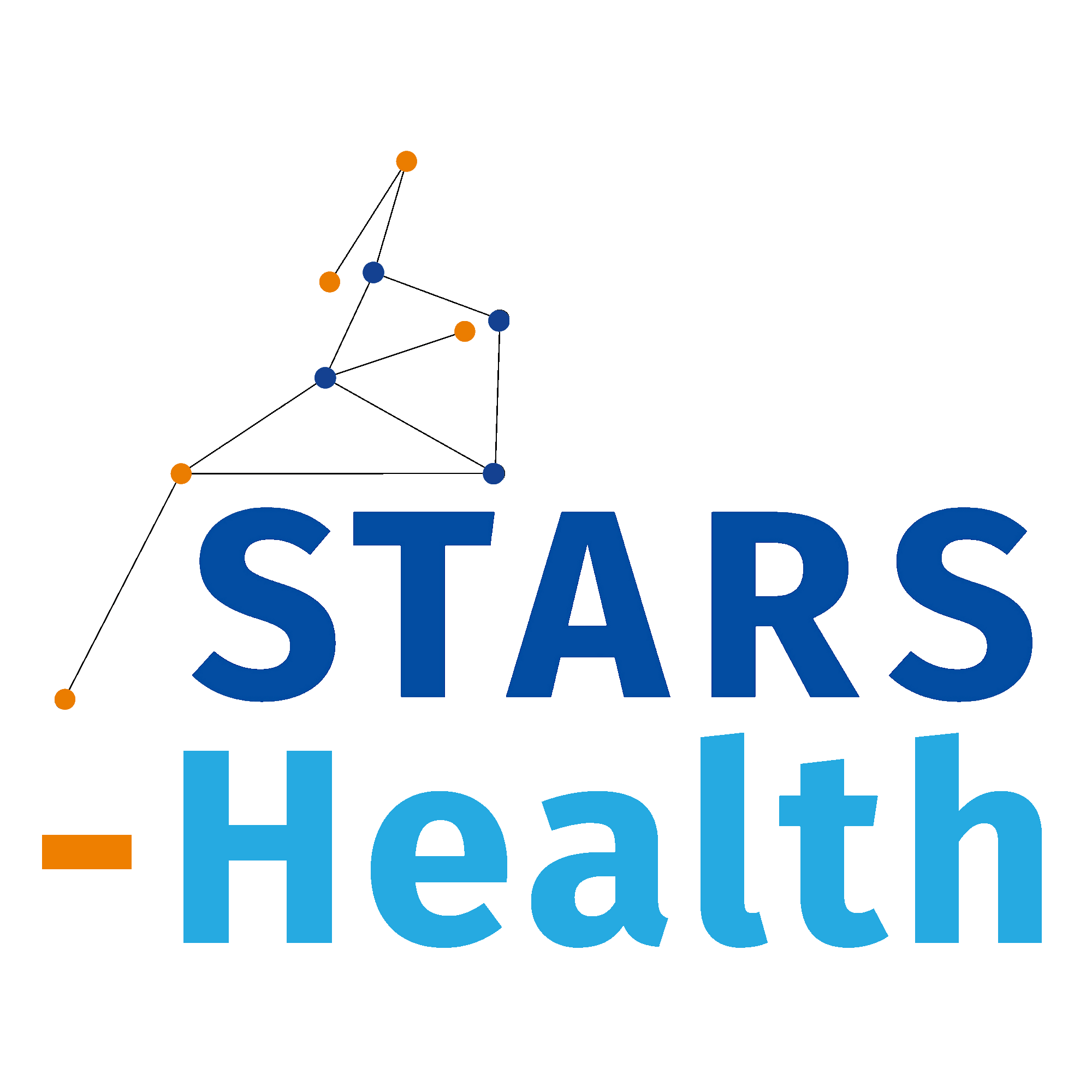
StarsHealth | Innovate to Prevent - Personalised Prevention in Health and Care Services
In Europe, 42% (0.36–0.48) of persons have lower health literacy. Health literacy involves finding, understanding, and using health information for informed health decisions. Lower health literacy is more profound in the ageing population, lower education and socioeconomic status, and more prevalent in rural areas. Lower health literacy in patients is related to higher prevalence of chronic diseases, hospitalisation, and doctor visits, resulting in stress on the healthcare system’s secondary and tertiary prevention programs in primary-, hospital-, and community-based care. Normally, caregivers support patient’s self-management by means of digital services. But these patients exhibit lower levels of digital literacy skills as well as a need for an adapted integrated health care system that surrounds these patients throughout their patient journey from the hospital to the community care with unambiguous communication strategies. This integrated care needs specific attention. This project aims to transform health and care systems towards a uniform integrated care system, supporting caregivers in communicating with older patients with lower health and digital literacy (LHDL), including their families and communities. This project seeks to enhance the ability of older adults with LHDL to understand and use digital services for preventing and managing health conditions to improve patient satisfaction, outcomes, and caregiver job satisfaction, thereby reducing health inequalities among older adults. To achieve this, we will redesign the FindMyApps app and develop training programs for both formal and informal caregivers in primary, hospital, and community-based care, empowering older adults to use digital services. FindMyApps, currently used by patients with mild dementia and their caregivers, gives an overview of user-friendly apps for different purposes. It allows patients to track their progress and share it with different caregivers. Combined with a training program on LHDL for health and care professionals, this project aims to enhance the digital literacy and care of older adults.
DataGEMS (Data Discovery Platform with Generalized Exploratory, Management, and Search Capabilities)
DataGEMS is a data discovery platform with Generalized Exploratory, Management, and Search capabilities. DataGEMS is built on the principles of data FAIRness, openness and re-use. It aims to seamlessly integrate data sharing, discovery and analysis into a system that addresses the whole data lifecycle, i.e., sharing, storing, managing, discovering, analyzing and reusing (data and/or metadata), bridging the gap between the data provider and the data consumer. DataGEMS is a next-generation data discovery and management ecosystem that engulfs different types of data (structured, unstructured, real-time and historical) and enables users to (a) enrich data through powerful data profiling mechanisms (b) seamlessly discover and analyze data across and within datasets using user-intuitive discovery and analysis mechanisms, such as using natural language and patterns, and (c) effectively explore and combine data with the help of stepwise guidance mechanisms during dataset discovery and analysis. The effective and efficient functioning of these mechansims will be powered by a data and model management layer that decouples data management at the low level from the data analytics at the higher level. DataGEMS is informed by and will be initially tested and deployed to promote data FAIRness and benefit diverse user communities and types of users on core domains: education, meteorology, and language data infrastructures.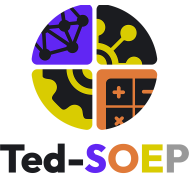
Ted-SOEP
Ted-SOEP project is to foster collaboration between South African and European HEIs to enable the exchange and transfer of expertise, best practices and know-how in integrating self-directed open educational practices (OEPs) and open educational resources (OERs) into STEM teacher education with focus on Artificial Intelligence.
NaturFAB - Promotion of Smart Specialization, industrial transition and entrepreneurship through new materials based on endogenous resources compatible with large format additive manufacturing technologies
NaturFAB seeks to promote the circular economy through the creation of new materials for large format 3D printing from fibers and residues of agricultural, forestry and mineral origin present in Castilla y León and Northern Portugal. It also aims to offer a solution to create and adapt 3D printers that allow printing larger pieces with these materials. The aim of NaturFAB is to bring together the existing industrial sector in the regions involved with new circular production processes. These new production processes are intended to be based on the use of fibers and waste from endogenous resources (agricultural, forestry and mining) from the cooperation area through additive manufacturing (3D printing). These new processes pursue the industrial transition of the area towards more sustainable and competitive models, as well as the revitalization of local economies in rural areas.Development of an intelligent system assisted by digital twin for detecting multiple simultaneous faults in induction electric motors
The project consists of the development of a robust methodology for fault identification in induction motors. The application of techniques for predicting simultaneous faults increases the availability and reliability of motors. The methodology encompasses the use of digital twins combined with artificial intelligence algorithms to produce a real-time maintenance tool for electric motors. Additionally, the digital twin allows the extension of the experimental data set beyond the motors available in this project, enabling the analysis of various faults and their severities.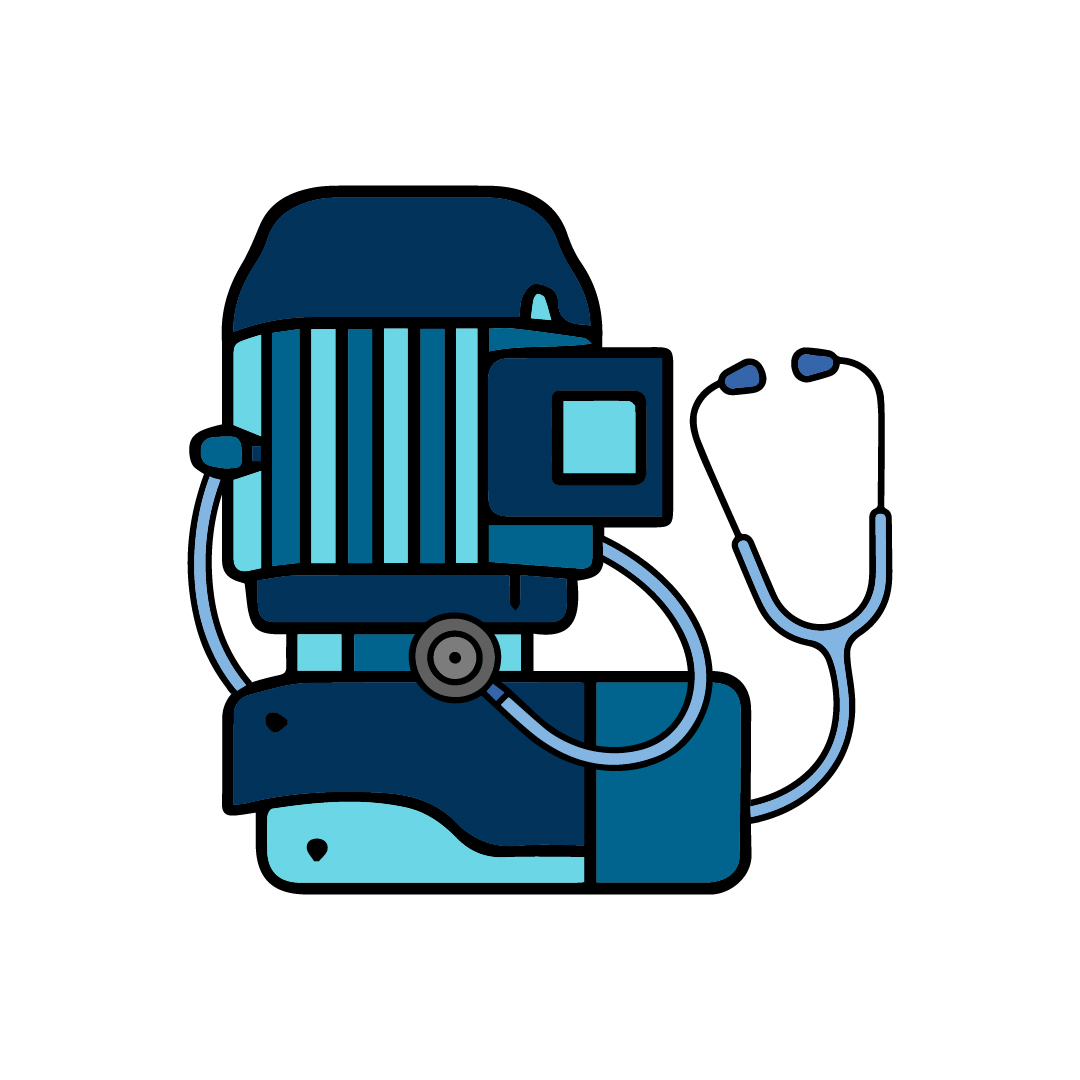
Development of an intelligent system assisted by digital twin for detecting multiple simultaneous faults in induction electric motors
The project aims to develop a robust methodology for fault identification in induction motors. By leveraging techniques for predicting simultaneous faults, the methodology enhances the availability and reliability of motors. It incorporates the use of digital twins combined with artificial intelligence algorithms to create a real-time maintenance tool for electric motors. Additionally, the digital twin expands the experimental dataset beyond the motors available in the project, allowing for the analysis of various faults and their severity levels.
Smart-LEM - A Business Model-Oriented Platform with Applications for Developing Local Electricity Markets and Accelerating Clean Energy Transition
This project aims at developing a Business Models for different types of users and activities (such as local markets) and integrating them into a digital platform offering support for trading and blockchain framework to record transactions and carry on smart contracts for local transactions. It targets a highly transformative outcome that is to make communities less dependent on external energy sources. The objectives are to create innovative BM for prosumers, storage facilities owners, EV charging stations and aggregators) that sum up the interest of small entities (small RES units and loads) and trade for them using the support of the SMART-LEM platform. Having in mind these objectives, that ultimately lead to integration of more RES, emergence of more EV charging stations that will be connected to the grid, creation of local markets emphasizing on the benefits of the participants and their involvement, this project proposal is relevant for the United Nations Sustainable Development Goals (SDG). The aim is beyond research and models: is to implement adequate models and bring benefits and value to the flexibility owners and consumers to change their behavior and increase awareness towards pro-environmental measures such as installing PV systems and using generation/storage and flexible loads when they are most valued. The SMART-LEM will smooth the clean energy transition and facilitate the link and synergies between parties: consumers and prosumers, storage owners, aggregators – that offer flexibility and their surplus and need-owners that can be DSO and TSO to handle grid congestions, plan their grids or trade systems reserves to assure the security of supply. The advantages of SMART-LEM consist of a market-oriented perspective by creating and implementing tailored BM based on user type (such as individual consumer, prosumer, aggregators, flexibility owners) and platform framework that will support their interaction. The SMART-LEM platform offers a digital solution for the operation of the local markets. The offers and bids of the parties will meet in the SMART-LEM and trade will be possible at better prices stimulating new RES, storage assets and more EV and the development of the energy communities landscape. Objectives of SMART-LEM are to facilitate the transition to RES, integrate more RES, create a local marketplace, show benefits and advantages to the participants to attract more participants and enlarge sustainable Energy markets. SMART-LEM will substantially contribute to lessen negative impact on biodiversity, mitigate water and air quality problems, reduce the environmental issues, including deaths, premature deaths, diseases, and other plagues. Considering the above, SMART-LEM objectives relate with SDG 7, affordable and clean energy, SDG 9, industry, innovation and infrastructure , SDG11, sustainable cities and communities, SDG 12, responsible consumption and production and SDG 13, climate action.
ThinkGame - Cooperation to implement Creative Thinking and Gamification for intelligent online training of engineering students
Consortium members will cooperate to identify, share and improve online methods with creative thinking and gamification techniques to stimulate learning (Digital Innovation for Social Change) and to support teachers in the development of new learning materials and tools and enhance the LMS adopted by each institution.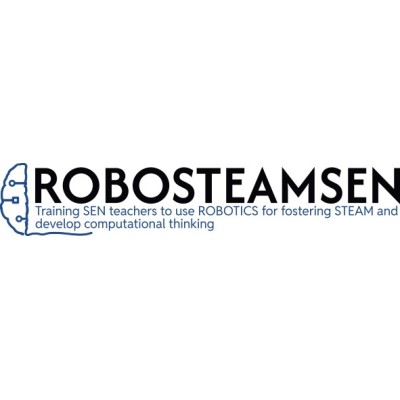
RoboSTEAMSEN - Training SEN teachers to use robotics for fostering STEAM and develop computational thinking
Our current society demands professionals with XXI competences. STEAM disciplines have shown to be specially relevant to facilitate their acquisition.However in such disciplines the inclusion of mentally disabled students is very difficult. RoboSTEAmSEN aims to support educational processes by providing mentally disabled students teachers with methodologies and tools for fostering STEAM and facilitating the acquisition of computational thinking by using Robotics and Active Learning Methodologies. The project main aim is addressed by: understanding disabled students needs and adapting robotics and active learning methodologies to their different diseases; defining training programs for teachers to they can make adaptations to personalize mentally disabled students learning; developing a community of practice supported by a technological, ecosystem to provide a meeting point for teachers and decision makers about what and how to succeed in STEAM Education for mentally disabled students. The main project outcome should be to improve STEAM Education for mentally disabled students. In order to achieve this we will produce several results: a taxonomy for classifying resources for this collective; a user model to personalize learning for them, guides; resources and courses for teachers; workshops models to spread the results beyond the project; and a technological ecosystem to support a community of practice in the topic.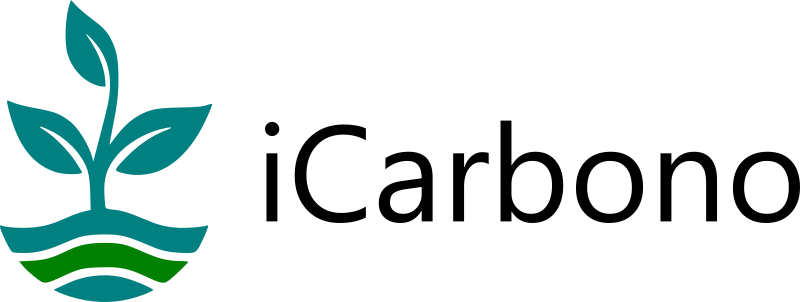
iCarbono
The iCarbono project aims to establish an intelligent and innovative system for monitoring the sequestration, storage and emission of carbon at multiple scales and to warn of critical situations where deviations or non-compliance with technical and political objectives are observed. The system features technological innovation in terms of carbon sensing, assessment and continuous evaluation and continuous representation in time and space based on the combination of methodologies and technologies at three scales, and its integration into a monitoring, evaluation and alert system to be available to decision-makers in the areas of territorial planning and management and to citizens.
OliveCo-Free - Innovative strategies to reduce Copper to protect olive trees against diseases
Trás-os-Montes is the second olive oil producing region in Portugal. Olive tree diseases cause significant production losses and negatively affect quality. To reduce its incidence, fungicides with copper are used. The widespread use of copper and high impacts on the environment led the EU to restrict its use and place it on the list of replacement candidates. However, the lack of alternative solutions puts the productivity, quality of the oil and the sustainability of the olive grove at risk. The OliveCo-Free project aims to optimally integrate innovative solutions to replace/reduce the use of copper. IPB will develop research in order to integrate, in a optimized, viable and safe, the new solutions and APPITAD will guarantee their rapid dissemination and adoption by interested agents. The results will make it possible to reduce the amounts of copper and the problems resulting from its application and can be extended to other crops and other regions. Task 4 of CeDRI's responsibility focuses on the development of the IT tool to support decision-making, based on the models developed in task 1, for which it is necessary to acquire IT material and human resources (own and hiring a scholarship holder).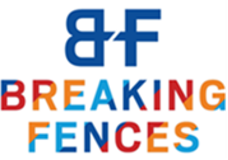
Breaking Fences
Improved capacity for norm awareness education in HIE ́s Health education and by doing so better quality of care in Europe. A Community of Practice to support long term sustainability and development of addressing these questions in education and practice. Break down existing geographical and national fences of how we address Norm awareness and equal care by creating a Norm Lab that can be displayed in different parts of Europe creating a platform for discussion and practices for Equal Care.
NaturFAB - Promotion of Smart Specialization, industrial transition and entrepreneurship through new materials based on endogenous resources compatible with large format additive manufacturing technologies
NaturFAB seeks to promote the circular economy through the creation of new materials for large format 3D printing from fibers and residues of agricultural, forestry and mineral origin present in Castilla y León and Northern Portugal. It also aims to offer a solution to create and adapt 3D printers that allow printing larger pieces with these materials. The aim of NaturFAB is to bring together the existing industrial sector in the regions involved with new circular production processes. These new production processes are intended to be based on the use of fibers and waste from endogenous resources (agricultural, forestry and mining) from the cooperation area through additive manufacturing (3D printing). These new processes pursue the industrial transition of the area towards more sustainable and competitive models, as well as the revitalization of local economies in rural areas.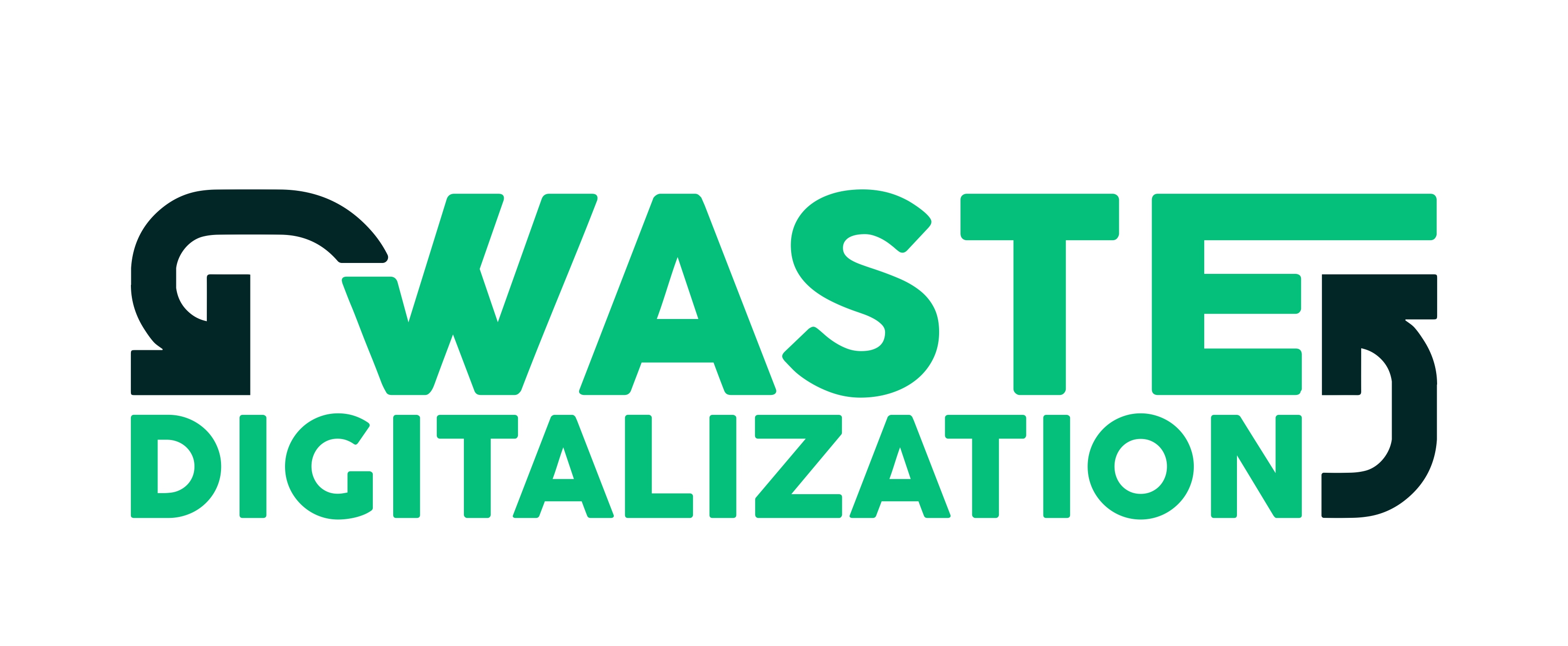
Waste Digitalization
The collection of solid urban waste is currently carried out in the traditional way by municipalities, associations of municipalities or specialised companies, using pre-established routes, resulting in inefficient use of fuel and time. What's more, given that the fleets of collection vehicles are largely made up of fossil-fuelled vehicles, there is a carbon footprint associated with this activity. To optimise collection, it is possible to combine the implementation of a wireless sensor network in waste containers with route optimisation algorithms. In this approach, the sensors provide real-time measurement of the level of waste in the container, information that can then be used to optimise the vehicles' route, reducing the distances travelled. The strategy presented also represents an important economic interest for institutions working with urban solid waste management.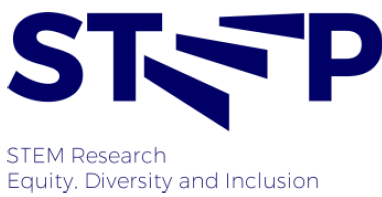
STEP
The STEP project aims to drive excellence and enhance the research capacity and reputation of Instituto Politecnico de Bragança (IPB) in the widening country of Portugal, by excelling in the domain of STEM (Science, Technology, Engineering and Mathematics) and EDI (Equality, Diversity and Inclusion) values through cross-fertilisation. This is a topic of the utmost importance for the academic environment, as it can contribute substantially towards ensuring the quality of research approaches within every institution and enhance cross-fertilisation between fields which are still observed as separated or divergent. IPB will be accompanied and guided by four research-intensive, international leading partners.
EYDP - Early Years Digital Portfolio
The “Early Years Digital Portfolio” EYDP project has the aim to create a more effective and transparent communication pattern among childhood education and care systems and families with the purpose to document, evaluate and assess the progress of each child according to a holistic view of the child's development and learning. The EYDP project has the following specific objectives: - Provide childhood educators and kindergarten teachers with pedagogical and methodological approaches to improve their evaluation and documentation skills integrating children and families in the process. - Prepare kindergartens to manage the transition to digital-based communication and interaction with families for documenting and assessing the development and learning process of children. - Provide childhood educators and kindergarten teachers with the skills to develop digital portfolios to document and assess the children's learning and performance. - Make available for childhood educators and kindergarten teachers as well as for the institutions they work at a Digital Portfolio Management System (DPMS) that will be made accessible through the EYDP project internet portal as a web-based application. The project, therefore, intends to innovate and support the transformation of early childhood education institutions and the qualification of their professionals, towards a more digital future of education.
ATTRACT DIH - Digital Innovation Hub for ArTificial InTelligence and High-PeRformAnce CompuTing
ATTRACT DIH’s mission is to promote and support experimentation, testing, development and adoption of solutions using Artificial Intelligence and HPC, as well as to address training needs, while boosting the innovation ecosystem in these fields, towards achieving significant improvements in the performance of organisations and reaching important sales volumes of national solutions in the international market. ATTRACT DIH aims to support the digital transition underway in Portugal, with special emphasis on AI and HPC. To this end, it will act as a fully qualified access point (one-stop-shop) to support companies, especially SMEs, and Public Administration (PA), in the design, development and adoption of methodologies and solutions exploring the potential of AI and HPC, making available the main Portuguese competence centres in these fields. ATTRACT DIH aims to work on both the supply and demand sides, in order to accelerate and increase the impact of these technologies, by supporting the development of new technologies and solutions that address the needs of SMEs and PA and, at the same time, to support the end users to adopt them.
openZDM - OPEN PLATFORM FOR REALIZING ZERO DEFECTS IN CYBER PHYSICAL MANUFACTURING
This project addresses the challenge of mfg industry to deliver high-quality products at the necessary production rates while minimizing waste and energy consumption, maximizing efficiency and ROI. The openZDM project is an Innovation Action that will develop and demonstrate in 5 representative production lines an open platform designed to realize ZDM. The platform integrates advanced ICT solutions & innovative non-destructive testing, setting the foundations for an innovative solution applicable to a large variety of mfg industries. The 5 pilots represent the largest part of the EU's manufacturing sector, geographically (including plants in northern and southern areas of Europe), technologically (fully & semi-automated, and manual processes) and from their value chain positioning (including Tier 1, Tier 2 suppliers, technology suppliers and OEMs). Furthermore, the choice of partners has been done considering strategic sectors for the green transition, in particular two energy intensive production processes (glass bottles, steel suspension arms), one process strategic for the electrification (production of batteries), one process consuming renewable materials (wood based panels) and one highly digitalized automotive assembly plant. The project aims to develop a digital platform that builds on the state-of-the-art RAMI 4.0 and Asset Administration Shell (AAS) to implement intra-factory quality management practices, applicable to these different production environments. In addition, several non-destructive inspection (NDI) methods and data-driven quality assessment techniques are considered for online defect identification and quality assessment, distributed at various stages along the manufacturing line. Finally, the Digital Twin and the related services is a key enabling technology for online process adaptation & prediction/prevention of defects, to achieve waste reduction and improved efficiency, aiming to significantly improve the production sustainability of CPPSs.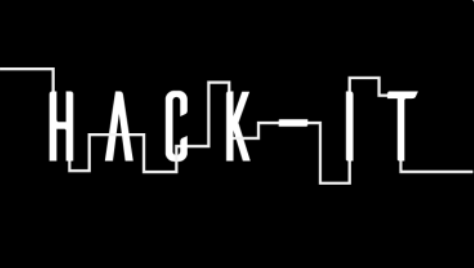
HACK-IT: Hackathon and Innovative Methodologies in Higher Education
The project addresses the imperatives to create more flexible and inclusive as well as secure technology enhanced open education that can be delivered in online, blended, and distance modes of teaching/learning. The project addresses the importance of supplementing teachers’ expertise in content knowledge with digital and pedagogical competences in order to ensure high quality, active, and transformative teaching/learning. It aims to enable teachers to implement and develop innovative practices in education in the digital era, promote and reward excellence in teaching and skills’ development, tackle, focus on and breach gaps and mismatches in teachers’ competences as well as develop a versatile approach to student learning in a way that will improve teacher and student active participation and satisfaction, efficient cooperation in teaching/learning settings.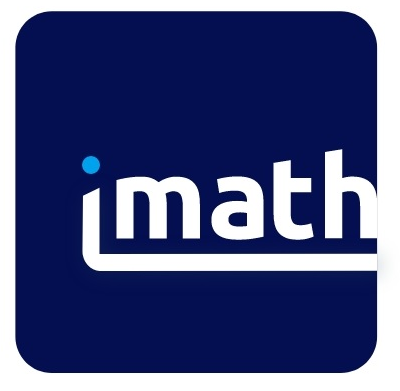
iMath - An Intelligent System to Learn Mathematics
The iMath project aims to develop a new AI-driven tool that supports higher education students by providing them with a set of learning materials selected based on their previous performance and iMath Community feedback.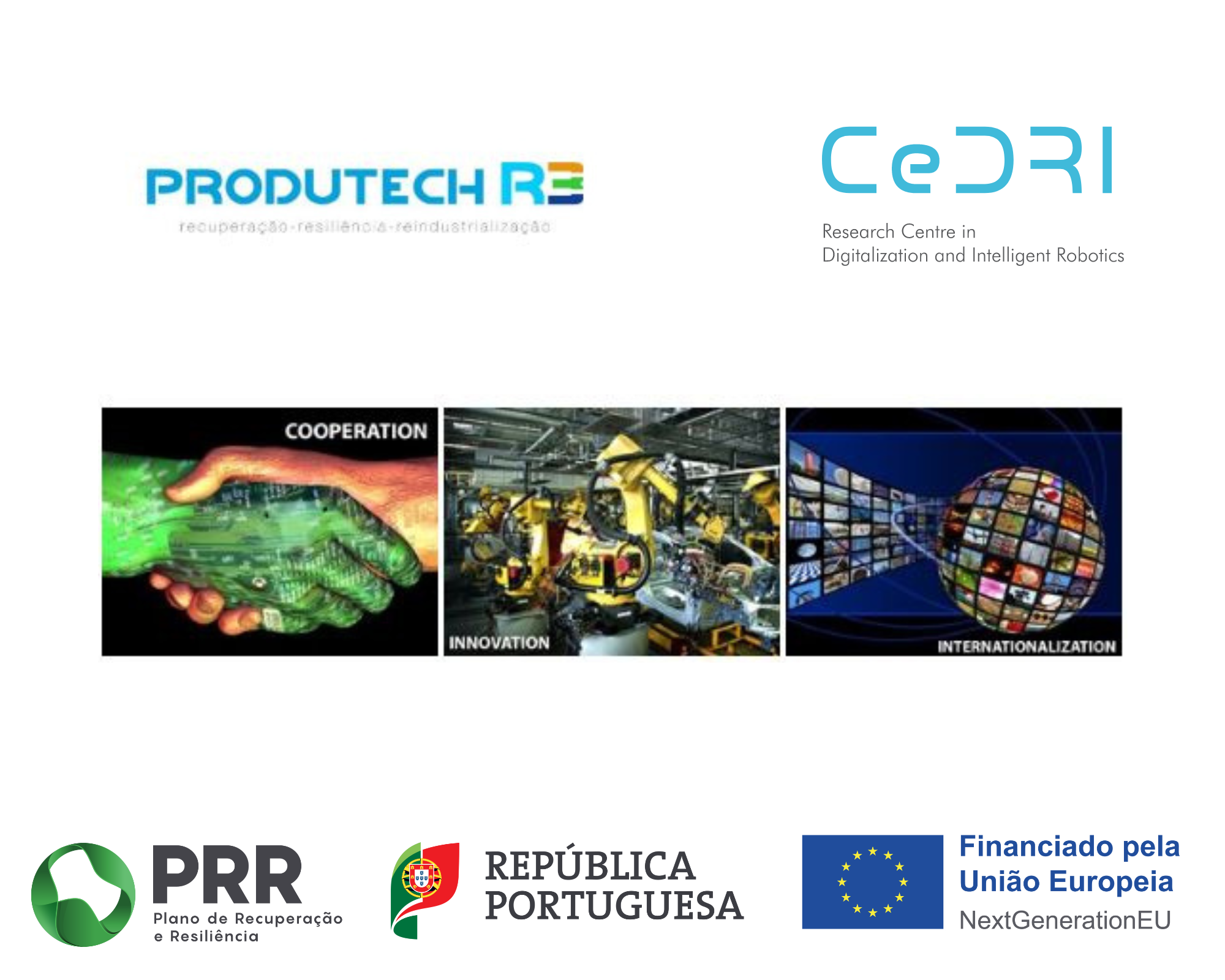
PRODUTECH R3
The PRODUTECH R3 project aims at inducing a structuring change in to exploit the significant investments that the industry is going to make in the future. With the green and digital transition, reducing external technological dependence, increasing the added value generated in the country and contributing to a change in the specialization of the Portuguese economy. Based on a partnership of 108 companies and other entities, FTP, the main sectors of industry and the scientific and technological system, the project provides for the 85 new innovative products and services and their demonstration in more than 52 pilot projects in user sectors and the development of complementary actions education and training, internationalization, dissemination and capacity building of FTP, inducing a structural change and the creation of a true eco-system of innovation in the area of production technologies, dynamic and sustainable. Link: https://portal3.ipb.pt/uploads/apoioinvestigacao/fichas_projeto/2023/5_Ficha_de_Projeto_PRODUTECH_R3_V2_IPB.pdf
iMath - An Intelligent System to Learn Mathematics
The iMath project aims to develop a new AI-driven tool that supports higher education students by providing them with a set of learning materials selected based on their previous performance and iMath Community feedback.
OLEAF4VALUE
OLEAF4VALUE is a research and innovation action (RIA) funded by the European Union (H2020 -JTI-BBI) focused on tackling the problem generated by olive biomass through the development of a complete olive leaf upcycling system. This three-year project that will develop a complete valorization system for the olive leaf. 4,5 million ton of olive leaves are produced annually in the world by the olive oil industry, a key industry in southern Europe and along the Mediterranean coast (Spain, Italy, Greece, Portugal, Slovenia, among others). This recalcitrant biomass represents a problem for both the farmers and the whole olive oil industry, who need to remove it from the fields and the olive oil mills. This biomass is nowadays burnt in the fields, given to the cattle or, in some cases, combusted to produce energy. OLEAF4VALUE will put together a competitive consortium (sixteen partners from nine different countries) of highly experienced partners devoted to the complete valorization of this new underexploited biomass. The consortium will address all the stages of the value chain: raw material, biorefining, post-extraction technologies, market validation and sustainability assessment. The goal of OLEAF4VALUE is to set up the basis of a smart value chain based on a newly developed 4.0 concept: Smart Dynamic Multi-Valorization-Route Biorefinery (SAMBIO) for the cascade valorization of the olive leaf biomass according to its physicochemical composition, particularly modulated by specific pretreatments to produce target products. In this context, at the Polytechnic Institute of Bragança. CeDRI-IPB collaborates with CIMO-IPB in order to digitize and automate processes in order to guarantee systematic and optimized solutions.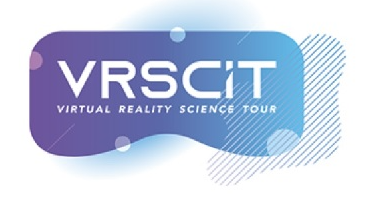
VRSciT - VR Science Tour
The VRSciT project consists of conducting a virtual educational visit to locations of cultural, social and natural interest of each partner involved, from Portugal, Spain, Italy, and Lithuania, by using Virtual Reality (VR) immersion and interaction techniques to provide users with a unique learning experience. VR technology adoption removes the barriers of remote visualization of environments making it possible for everyone to experience a high educational value through digitalization.
NanoStim - Nanomaterials for wearable-based integrated biostimulation
The NanoStim Project aims to develop a high-performance dry and flexible (nano)sensor system based on thin films with customized (nano)structures. Integrated into a garment, the (nano)sensor system will be used in the rehabilitation of advanced muscle injuries and/or lack of mobility, especially in the elderly, committing to the World Health Organization's Global Strategy and Action Plan for Healthy Ageing and the fundamental values and objectives of the European Union (EU). This system, controlled remotely by healthcare professionals, represents the possibility of combining diagnosis, therapy and rehabilitation in a single, truly patient-centered medical device, to be used anywhere, freeing up healthcare centers and increasing the patient's degree of freedom and comfort.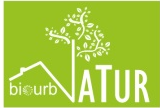
BIOURB NATUR
The main goals of this project are the joint analysis and the proposal of bioconstructive and energy efficiency solutions, as a way of responding to the singularities raised by the different territories of the project; the joint development of intervention proposals for buildings on both sides of the border, with benefits for the coherence of the project and for the technical contributions generated in cooperation; and the development of joint interventions, with the corresponding monitoring and training, as a way of transferring the resources and competence common to the consortium.
SelfMed
The pills dispenser SelfMed is an automatic and independent device, capable of providing the users with the correct dose of medication and in the prescribed time. SelfMed will assist elderly people. It has a capacity to serve up to 30 days, up to 15 different types of pills of any size and shape, multiple times a day. Easy to operate, the dispenser will be filled up carefully by a qualified nurse or caregiver, following the prescription of a patient. Once the carer, nurse or family members fill up the machine for a month, the patient will only have to wait for the alarms to beep in order to take their pre-scheduled medication, at that time. The machine itself has a function of sound and flashlight for an alarm function. This project also proposes to integrate a smart band and an application to support the pills dispenser SelfMed. This auxiliary device will expand the reminder range, enabling the user to always notice the alarm. The project has a multidisciplinary team that integrates researcher from data science, optimization, communication, electronics ad mechanics. Research Team: Bruno Costa, Ana I. Pereira, Rui P. Lopes, José Lima, Luís Mesquita, Inês Afonso, Richard Jonker and Roshan Poudel.
DISRUPTIVE - Dinamización de los Digital Innovation Hubs dentro de la región PocTep para el impulso de las TIC disruptivas y de última generación a través de la cooperación en la región transfronteriza
The aim of the project is to promote excellence in R&D through the Digital Innovation Hubs (DIHs) or innovation poles of Castilla y León and Northern Portugal, in order to: i) develop new R&D initiatives around disruptive ICT technologies that are strategically important for the EU; ii) articulate a transformation of the cross-border region, promoting research activity, the productive intensity of reference centers and the number of specialized researchers; iii) generate a driving effect that has a major impact on the development and competitiveness of the cooperation area.
SAFe: Forest Alert Monitoring System
The "SAFe: Forest Alert Monitoring System" project aims to create and implement a set of innovative operations that will minimize the occurrence of forest fires, monitoring the fauna, and contribute to the development of the Trás-os-Montes region, with specific focus in the district of Bragança. The set of activities that constitute the environment are easily replicable to other regions with similar characteristics.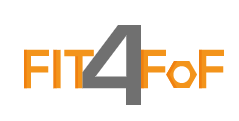
FIT4FoF (Making our Workforce Fit for the Factory of the Future)
Increased introduction of digital technologies into manufacturing is leading to increased automation, making a range of manual tasks redundant. The increased globalisation in manufacturing also introduces requirements in terms of team work, intercultural and language capabilities. Europe faces considerable challenges in addressing future skills needs. From the perspective of the workforce the issues are increasingly complex where current training and educational solutions are discrete and largely dissociated from work activities. FIT4FoF aims at addressing a range of these issues by analysing current skills initiatives to better understand how best address workers' needs, analysing technology trends across 6 industrial areas of robotics, additive manufacturing, mechatronics/machine automation, data analytics, cybersecurity and human machine interaction, to define new job profiles, which will inform education and training requirements.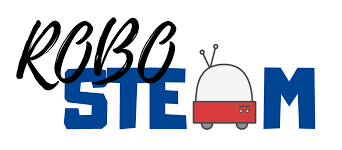
RoboSTEAM - Integrating STEM and Computational Thinking development by using robotics and physical devices
The main aim of this project is the definition of a knowledge base to facilitate integrating STEAM and computational thinking by using robots. This will be carried out by developing pilot programs, gathering good practices and tools, and defining learning actions and educational resources for teachers.
VR@School (Future schools using the power of Virtual and Augmented Reality for education and training in the classroom)
In today’s digital world, teachers are struggling in finding new ways to engage students, since home technologies, such as mobile phones and tablets, are highly advanced when compared with classroom technology, especially if the technology deployed there is less engaging than the technology used at children’s home. Virtual Reality can become a teaching methodology which helps students feel immersed in the experience, gripping their imagination and stimulating thought in ways not possible with traditional books, pictures or videos. Enhancing and extending the learning experience is at the heart of what Virtual Reality can offer students, and is possibly one of the most powerful of all technologies that could help change how we learn forever.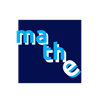
MathE (Improve Math Skills in Higher Education)
The main goal of MathE - Improve Math Skills in Higher Education - project is to encourage training and promote the quality, and diversity, of teaching math. New tools will be produced to support teachers and students. These strategies are supported with digital technologies and ICT procedures to improve pedagogies and assessment methods. In MathE project an Online Math Library will be available for students and teachers of higher education institutions to provide them with video based teaching and learning sources in order to reinforce specific mathematical topics, namely calculus, algebra, operation research, among others. Assessment tools are also available for training and final assessmets.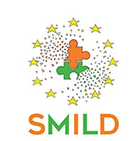
SMiLD (Focus on Students with Mathematics Learning Disabilities)
The SMiLD project has as main motivation the promotion of the acquisition of skills and key competences with a specific focus on addressing underachievement in maths. Therefor, the main objective of SMiLD project is the development of protocols for helping teachers to obtain the most appropriate solutions for the students with Learning Disabilities in Math. Data will be collected, analysed and clustered to elaborate a set of strategies for teachers that will be freely available in the project.
MathE (Improve Math Skills in Higher Education)
The main goal of MathE - Improve Math Skills in Higher Education - project is to encourage training and promote the quality, and diversity, of teaching math. New tools will be produced to support teachers and students. These strategies are supported with digital technologies and ICT procedures to improve pedagogies and assessment methods. In MathE project an Online Math Library will be available for students and teachers of higher education institutions to provide them with video based teaching and learning sources in order to reinforce specific mathematical topics, namely calculus, algebra, operation research, among others. Assessment tools are also available for training and final assessmets.
GO0D MAN (aGent Oriented Zero Defect Multi-stage mANufacturing)
The project aims the development of Zero-Defect Manufacturing (ZDM) strategies in multi-stage production systems, through the integration of quality control and process control using cyber-physical systems, intelligent inspection systems and advanced data analysis tools. As result, it will be possible the earlier and real-time deviations and patterns, and consequently to avoid the occurrence of defects in the stations and their propagation to posterior processes.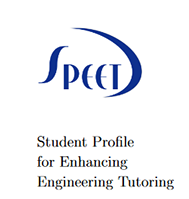
Student Profile for Enhanching Engineering Tutoring (SPEET)
SPEET is an ERASMUS+ project aimed to determine and categorize the different profiles for engineering students across Europe. The main rationale behind this proposal is the observation that students performance can be classified according to their behavior while conducting their studies. After years of teaching and sharing thoughts among colleagues from different EU institutions it seems students could obey to some classification according to the way they face their studies. Therefore, if it would be possible to know what kind of student one student is, this may be of valuable help for tutors.
DA.RE (Data Science Pathways to re-imagine education)
The need for qualified Data Scientist has grown rapidly in the last years with the introduction of Industry 4.0 technologies. The DA.RE project is focused on a pioneer development of a new blend mixed education program in the area of Data Science, actuating as a catalyzer for the design and deployment of new educational programs, at national, European and international levels.
PERFoRM (Production harmonizEd Reconfiguration of Flexible Robots and Machinery)
The project focuses the conceptual transformation of existing Production Systems towards plug&produce production systems to achieve flexible manufacturing environments based on rapid and seamless reconfiguration of machinery and robots as response to operational or business events.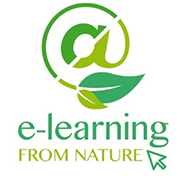
E-Learning from Nature
The E-Learning from Nature project was funded by the European Commission and the Italian National Agency for the Erasmus+ Programme with the aims of promoting a proactive students’ approach to scientific subjects learning and propose innovative teaching methodologies to scientific teachers.
ARUM (Adaptive Production Management)
The project aims the development of mechanisms focusing the achievement of faster and more adaptive ramp-up processes using multi-agent systems.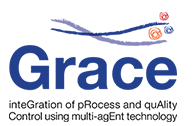
GRACE (Integration of Process and Quality Control Using Multi-agent Technology)
The project aims the development of distributed production control systems integrating process and quality control levels using multi-agent systems principles and self-adaptation procedures to support variation and fluctuation in processes and products.